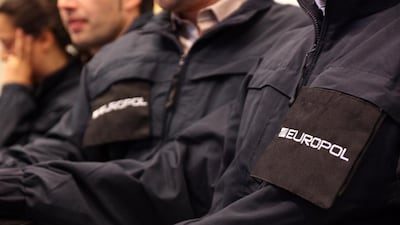The Netherlands has replaced Spain as the hotspot for criminal gangs smuggling cocaine into Europe, a report has revealed.
Highlighting the new phenomenon of rival gangs collaborating, crime agency Europol said cocaine dealing was a major problem for the continent.
The Cocaine Insights Report, which was compiled by Europol and the United Nations Office on Drugs and Crime, outlined the modern dynamics of the cocaine market.
"The fragmentation of the criminal landscape in source countries has created new opportunities for European criminal networks to receive a direct supply of cocaine, cutting out the intermediaries," it said.
"The epicentre of the cocaine market in Europe has shifted northwards. The increased use of container shipments relying on the high-volume ports of Antwerp, Rotterdam and Hamburg has consolidated the role of the Netherlands as a staging point and led to continental Europe’s North Sea coast overtaking the Iberian Peninsula as the primary point of entry for cocaine reaching Europe.
"The majority of cocaine reaching Antwerp is likely intended for organisations operating out of the Netherlands, from where the cocaine is further distributed to other European destinations."
The report said the cocaine market in Europe is now "more violent, diverse and competitive" than in previous years, and that it represents "a clear threat to European and global security".
It revealed drug kingpins were starting to pool their resources.
"A new phenomenon involves increased co-operation between drug-trafficking organisations (DTOs) based in Europe," it said.
"Recent reports suggest possible collusion among European high-level cocaine brokers and traffickers from distinct backgrounds. One example of an attempt at collusion among different groups may have been observed in 2017 in Dubai, involving individuals with ties to Irish, Italian, Bosnian and Dutch DTOs.
"In some cases, DTOs have pooled their capital to jointly purchase larger quantities to maximise profits. Another instance of such collaboration may have been detected when French and American authorities stopped, in November 2017, a pattern of charter flights arriving at Biarritz, France, loaded with large quantities of cocaine from Colombia which were organised by a mix of Albanian, Turkish, Dutch, Spanish, Italian, French and English masterminds."
The report said violence had increased with public shootings, bombings, kidnappings and torture – with some gangs even converting shipping containers in the Netherlands into torture chambers, it said.
"Cocaine markets have attracted new DTOs, resulting in intensified competition," it said.
"In the spring of 2020, the French and Dutch authorities, with the support of Europol and other countries, carried out investigations into organised crime groups using an encrypted communications platform.
"The data collected provided law enforcement agencies with a unique global view of the activities of high-risk organised crime groups, particularly in drug trafficking but also in the use of violence."
The report said "hundreds of serious, violent crimes", including murders and threats to kill, were detected.
In 2019, alleged Dutch crime lord Ridouan Taghi was arrested in Dubai and faces multiple charges of murder and running a hit squad operating in Spain and the Netherlands.


